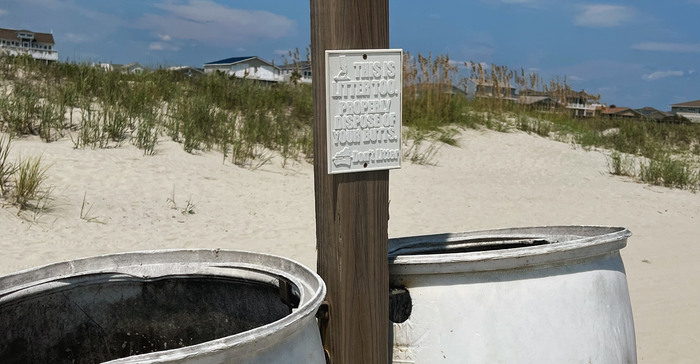Have you ever been to a nature reserve and watched someone carelessly discard the wrapper of the snack they just ate or flick their cigarette butts into the grass? These actions often have a much higher level of impact than people are taught in school.

Have you ever been to a nature reserve and watched someone carelessly discard the wrapper of the snack they just ate or flick their cigarette butts into the grass?
These actions often have a much higher level of impact than people are taught in school.
While preventing litter is important in any region of the world, it becomes a specific point of concentration for regions where the economy is based on tourism. Without proper education and resources, it is easy for people to act leisurely and not understand the impacts of their actions, which leads to multiple ramifications for the environment.
By allowing tourists into a natural landscape for recreational exploration, you are opening up a great deal of risk for damage to the exact same natural beauty these people are there to see. Though this can be risky in terms of preserving the local environment, it is often a complete necessity for supporting the people living in the region.
Tourism and recreation are the largest employer in the ocean and Great Lake-region economies, according to the National Oceanic and Atmospheric Administration (NOAA).
The number of people who visit and work in these regions often don't take care of the very community they enjoy, creating a predicament. Many beachside communities have adopted acute action plans for preventing negligent waste disposal and damage to the environmental landscapes their economy relies on.
The same report by the NOAA claimed that by virtually eliminating all marine debris, the Great Lakes region generated an additional $217 million in tourism dollars and established 3,700 more jobs. Meanwhile, Orange County, California saw a doubling of marine debris and experienced 4.6 million fewer tourist visits.
In order to prevent this poor waste dumping or correct where it is done on accident, different beach areas are tackling the litter problem in a variety of ways.
In Sunset Beach, North Carolina the efforts to eradicate beach and water debris are taking shape in a variety of ways, but most prominently is signage promoting the proper disposal of trash and abundant access to public trash and recycling bins.
This gallery is a collection of photos from the Sunset Beach area displaying some of the ways the community has worked towards providing the motivation and resource access necessary to avert tourists' waste from the natural beauties they are visiting to marvel at to where it really belongs; trash and recycling bins.
About the Author(s)
You May Also Like




